Menopause and Depression

Menopause: A Natural Transition with Holistic Support
Menopause is a natural biological milestone marking the end of a woman’s reproductive years. It typically occurs between ages 45 and 55 and is defined by 12 consecutive months without a menstrual period. At the Naturopath Osteopath Clinic, we support women through this life stage with compassionate, individualized care rooted in naturopathic medicine.
Common Symptoms of Menopause
Menopause can bring a wide range of physical and emotional symptoms due to hormonal changes:
- Hot flashes and night sweats
- Irregular periods leading to cessation
- Mood swings, irritability, or depression
- Vaginal dryness and discomfort during intimacy
- Insomnia or disrupted sleep
- Weight gain and slowed metabolism
- Brain fog or difficulty concentrating
Our Naturopathic Approach to Menopause
Our licensed Naturopathic Doctors understand that no two women experience menopause the same way. We provide comprehensive care that may include:
- Comprehensive hormone testing like the Female Hormone Panel
- Herbal medicine and nutritional supplementation
- Bioidentical hormone support when appropriate
- Dietary and lifestyle changes to support hormonal balance
- Stress-reduction strategies and emotional support
- Acupuncture, osteopathy, and integrative therapies
Empowering Women with Natural Solutions
Menopause is not a disease—it’s a transition. Our goal is to empower women to thrive during this stage of life by addressing the root causes of discomfort, restoring balance, and enhancing overall well-being.
If you’re seeking natural, effective relief for menopausal symptoms, contact us to begin your personalized wellness journey today.

Menopause and Depression
Menopause marks a natural transition in a woman’s life, but for many, it can come with emotional and psychological challenges—especially depression. At the Naturopath Osteopath Clinic, we recognize the strong link between hormonal fluctuations during menopause and mental health changes, including mood swings, anxiety, irritability, and depressive episodes.
Understanding the Connection
As estrogen and progesterone levels decline, neurotransmitters like serotonin and dopamine can be affected. These chemical shifts often contribute to:
- Persistent sadness or low mood
- Loss of interest or motivation
- Fatigue and lack of energy
- Sleep disturbances
- Feelings of hopelessness or worthlessness
Our Holistic Naturopathic Approach
Our licensed naturopathic doctors provide a thorough, individualized treatment plan to help manage both menopausal symptoms and emotional well-being. Our integrative care includes:
- Hormone testing, such as the Female Hormone Panel
- Botanical and nutritional supplementation to balance hormones
- Mind-body techniques including stress-reduction and mindfulness
- Dietary support to stabilize mood and blood sugar
- Acupuncture and osteopathy for emotional and physical balance
- Psychotherapy and counseling, where needed
Empowering Women Through Transition
We believe menopause is not an illness, but a transformation—one that can be navigated with the right support. Our compassionate care team is here to guide you toward emotional resilience and hormonal balance, helping you embrace this phase with confidence and clarity.
Take the first step toward healing. Contact us today to learn how we can help manage menopause-related depression and support your overall wellness.
Menopause: A Natural Stage in a Woman’s Life Cycle
Menopause is a natural, biological phase that marks the end of a woman’s reproductive cycle. It occurs when the ovaries stop producing estrogen and progesterone—key hormones responsible for regulating the menstrual cycle. Typically, menopause happens between the ages of 45 and 55, although the exact age can vary depending on genetics, lifestyle, and overall health.
Understanding the Transition
Menopause doesn’t happen overnight—it unfolds in stages. The process often begins with perimenopause, where hormone levels begin to fluctuate and menstrual cycles become irregular. This transition phase can last for several years before periods stop completely. Once a woman has gone 12 consecutive months without menstruating, she is considered postmenopausal.
Common Symptoms of Menopause
This natural transition is associated with a wide range of physical and emotional symptoms, which may include:
- Hot flashes and night sweats
- Irregular or missed periods
- Mood changes, anxiety, or depression
- Sleep disturbances or insomnia
- Vaginal dryness and discomfort during intercourse
- Changes in libido
- Weight gain or changes in metabolism
A Naturopathic Perspective on Menopause
At the Naturopath Osteopath Clinic, we embrace menopause as a natural and transformative stage of life. Our naturopathic doctors work with you to support hormonal balance and reduce symptoms through gentle, natural therapies that align with your body’s rhythms. These may include:
- Hormone testing with the Female Hormone Panel
- Herbal remedies and supplements
- Customized nutritional guidance
- Acupuncture and osteopathy to reduce stress and restore energy
- Mind-body therapies and stress management techniques
Embrace the Change with Confidence
Menopause is a powerful shift in a woman’s life—an opportunity to redefine health and vitality. Through holistic and individualized care, our goal is to help you navigate this transition with comfort, clarity, and strength.
Take charge of your well-being with natural, evidence-informed support. Book a consultation today to start your menopause wellness journey.
Amenorrhea: Understanding the Absence of Menstruation
Amenorrhea is the medical term for the absence of menstruation. While it is normal during certain life stages—such as pregnancy, breastfeeding, and menopause—amenorrhea outside these phases may indicate an underlying health concern. Experiencing amenorrhea a second time can signal a disruption in your body’s hormonal balance and warrants a deeper evaluation.
Types of Amenorrhea
- Primary Amenorrhea: When menstruation has not begun by age 15 or 16.
- Secondary Amenorrhea: When a woman who previously had regular periods stops menstruating for three months or more.
Causes of Recurrent (Second-Time) Amenorrhea
If you’ve experienced amenorrhea before and it’s returned, several factors could be involved:
- Hormonal imbalances (e.g., PCOS, thyroid dysfunction, elevated prolactin)
- Significant stress or emotional trauma
- Sudden weight loss, poor nutrition, or eating disorders
- Intense physical activity or over-exercising
- Use of certain medications or birth control
- Perimenopause or early ovarian failure
Naturopathic Approach to Treatment
At the Naturopath Osteopath Clinic, our naturopathic doctors investigate amenorrhea through a holistic lens. We focus on uncovering the root cause by assessing your medical history, lifestyle, and using advanced lab testing—such as the Female Hormone Panel—to evaluate hormonal health.
Our treatment plans may include:
- Herbal medicine and nutraceuticals to support hormonal regulation
- Stress management techniques (mindfulness, acupuncture, counseling)
- Dietary changes to restore nutrient balance and improve ovulatory function
- Correcting any thyroid or adrenal dysfunctions
Empowering Your Reproductive Health
Whether you are experiencing amenorrhea for the first or second time, it’s essential to seek care that prioritizes your whole-body wellness. Reclaim your cycle and hormonal balance naturally with individualized, evidence-based support.
Schedule a consultation at Naturopath Osteopath Clinic and take the first step toward restoring your menstrual health today.
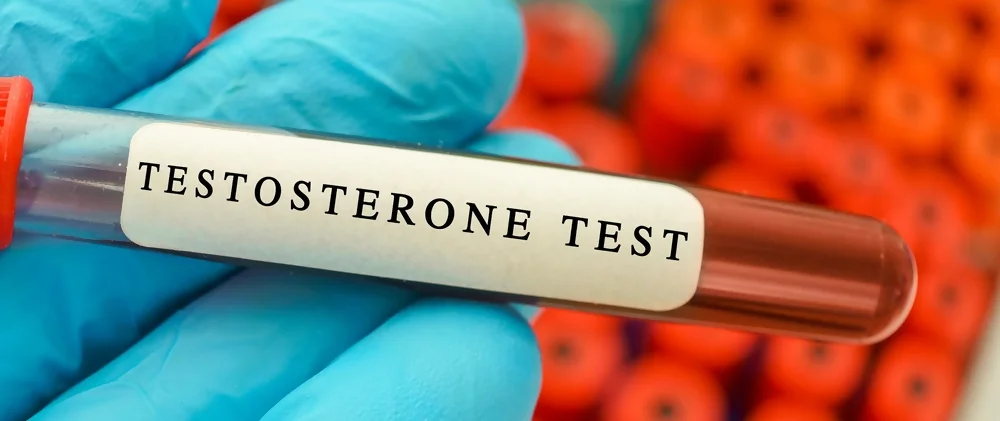
Male Menopause (Andropause): Understanding Hormonal Changes in Men
Andropause, often referred to as “male menopause,” is a condition associated with the gradual decline of testosterone and other hormones in men, typically beginning in their late 40s to early 50s. Unlike female menopause, which happens in a relatively short time, andropause occurs more gradually but can still have a profound effect on a man’s health and well-being.
Common Symptoms of Andropause
Low testosterone levels can impact both physical and emotional health. Men experiencing andropause may report:
- Reduced libido and sexual performance
- Fatigue and decreased energy levels
- Loss of muscle mass and increased body fat
- Mood swings, irritability, or depression
- Sleep disturbances
- Decreased motivation and mental clarity
Causes of Hormonal Decline in Men
Andropause may be triggered or worsened by a variety of factors including:
- Age-related hormonal changes
- Chronic stress and adrenal fatigue
- Poor nutrition and sedentary lifestyle
- Obesity or insulin resistance
- Exposure to endocrine-disrupting chemicals
Diagnosis Through Advanced Testing
At the Naturopath Osteopath Clinic, our licensed Naturopathic Doctors use advanced diagnostics, including the Male Hormone Panel, to assess testosterone levels and identify imbalances in DHEA, cortisol, estrogen, and other related hormones.
Holistic Naturopathic Treatment for Andropause
Our integrative treatment approach addresses the root causes of hormonal decline and supports the body’s natural ability to rebalance. Your personalized plan may include:
- Herbal and nutritional supplements to boost testosterone naturally
- Stress management techniques such as acupuncture or mindfulness-based therapies
- Targeted exercise and fitness strategies to increase energy and improve mood
- Dietary guidance to reduce inflammation and support hormone production
Why Choose Naturopathic Care?
Our clinic is committed to evidence-based, non-invasive therapies that empower men to regain vitality, mental clarity, and physical strength without synthetic hormone replacement unless medically necessary. We work collaboratively with you to achieve lasting hormonal balance and overall well-being.
Ready to feel like yourself again? Book a consultation with our naturopathic team and explore how natural treatments can support your journey through andropause.
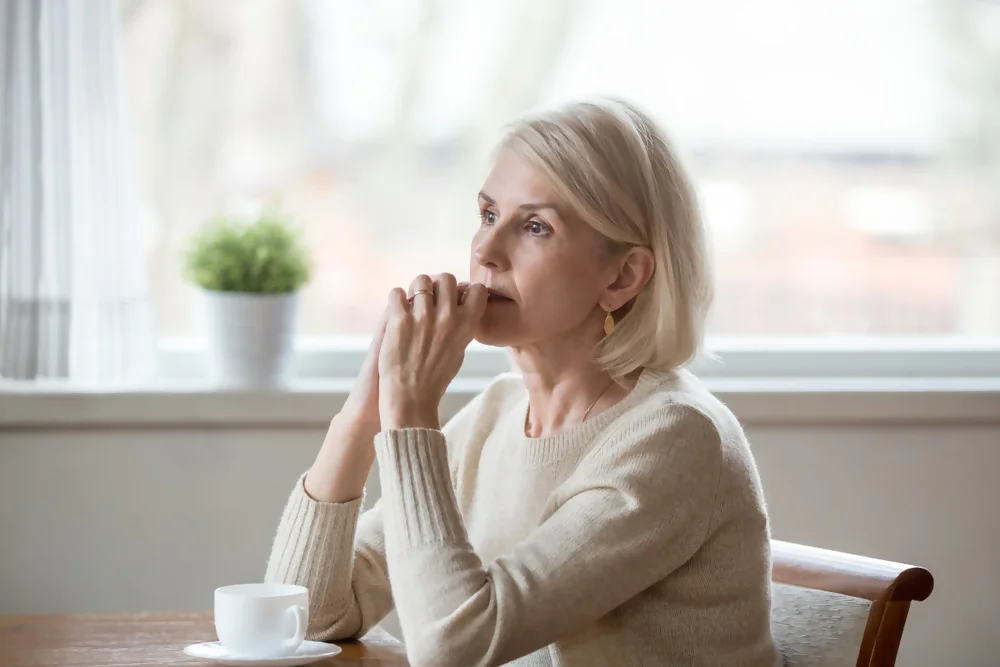
Having Postmenopausal Depression: Understanding and Supporting Mental Health After Menopause
Postmenopausal depression is a serious and often overlooked condition affecting many women after they transition through menopause. As hormone levels such as estrogen and progesterone decline, it can significantly impact mood regulation, emotional resilience, and overall mental health.
What Causes Postmenopausal Depression?
Several factors may contribute to depression after menopause, including:
- Hormonal imbalances, especially reduced estrogen levels
- Life transitions such as aging, retirement, or changes in family dynamics
- History of mood disorders or prior episodes of depression
- Sleep disturbances or chronic fatigue
- Increased inflammation and oxidative stress
Recognizing the Symptoms
It’s important to be aware of the common signs of postmenopausal depression:
- Persistent sadness or low mood
- Loss of interest in activities once enjoyed
- Fatigue and low energy levels
- Difficulty concentrating or memory issues
- Feelings of hopelessness or worthlessness
- Changes in appetite or sleep patterns
How Naturopathic Medicine Can Help
At the Naturopath Osteopath Clinic, our approach to postmenopausal depression integrates mind-body care through naturopathic medicine. We focus on identifying the root causes of your symptoms and developing a personalized treatment plan that supports emotional and physical well-being.
Treatment Options May Include:
- Bioidentical hormone support if clinically indicated
- Botanical medicine and adaptogenic herbs for mood regulation
- Acupuncture for emotional balance and stress relief
- Individualized nutrition plans to support brain chemistry
- Mindfulness, meditation, and counseling support
Comprehensive Lab Testing
We offer comprehensive hormonal and adrenal testing—including Female Hormone Panels—to assess key biomarkers that may be contributing to your depression. These insights help guide effective, targeted treatment strategies.
Empowering Women Through Every Stage
Our naturopathic doctors are dedicated to walking alongside you as you navigate the emotional and physical changes of postmenopause. You are not alone, and support is available. With compassionate care and a holistic plan, we can help you restore balance, energy, and emotional well-being.
To learn more or to book an appointment, visit our Contact Page today.
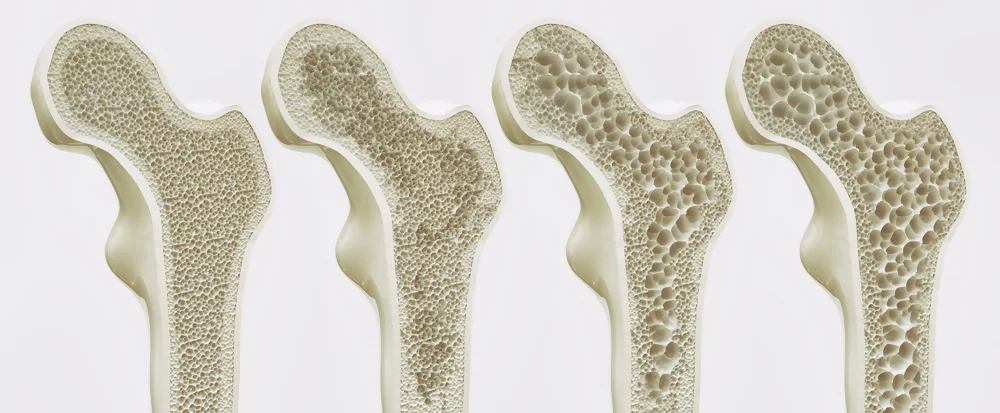
Osteoporosis During Menopause: Protecting Bone Health Naturally
Osteoporosis is a common concern for women during and after menopause due to the natural decline in estrogen levels. Estrogen plays a crucial role in maintaining bone density, and its reduction can accelerate bone loss, making bones more fragile and prone to fractures.
Why Menopause Increases Osteoporosis Risk
As estrogen levels decrease, bone resorption (breakdown) begins to outpace bone formation. This leads to a reduction in bone mass and density, significantly increasing the risk of conditions like:
- Hip fractures
- Spinal compression fractures
- Wrist and vertebral fractures
Symptoms and Warning Signs
Osteoporosis is often called a “silent disease” because bone loss can occur without symptoms. However, signs may include:
- Loss of height over time
- Back pain due to collapsed or fractured vertebrae
- Stooped posture
- Fractures from minimal trauma
Naturopathic Approach to Osteoporosis
At the Naturopath Osteopath Clinic, we use a holistic, evidence-based approach to support bone health during menopause. Our naturopathic doctors focus on identifying risk factors, correcting nutrient deficiencies, and improving bone metabolism naturally.
Treatment Strategies May Include:
- Comprehensive lab testing – to assess Vitamin D, calcium, hormone levels, and inflammatory markers
- Bioidentical hormone support – when appropriate, to stabilize estrogen and progesterone levels
- Bone-supportive nutrients – including Vitamin D3, K2, magnesium, boron, and calcium from whole food sources
- Herbal medicine – such as red clover or black cohosh to support hormonal balance and bone integrity
- Weight-bearing exercise plans – to stimulate bone growth and maintain strength
- Dietary counseling – focused on reducing acid-forming foods and increasing nutrient-rich, alkaline meals
Prevention and Ongoing Support
Preventing osteoporosis starts with early detection and lifestyle support. Our team will work closely with you to create a long-term bone health strategy tailored to your stage of life and unique needs.
Empower yourself to age with strength and vitality. Book a consultation at the Naturopath Osteopath Clinic and learn how we can support your bones—naturally and effectively.
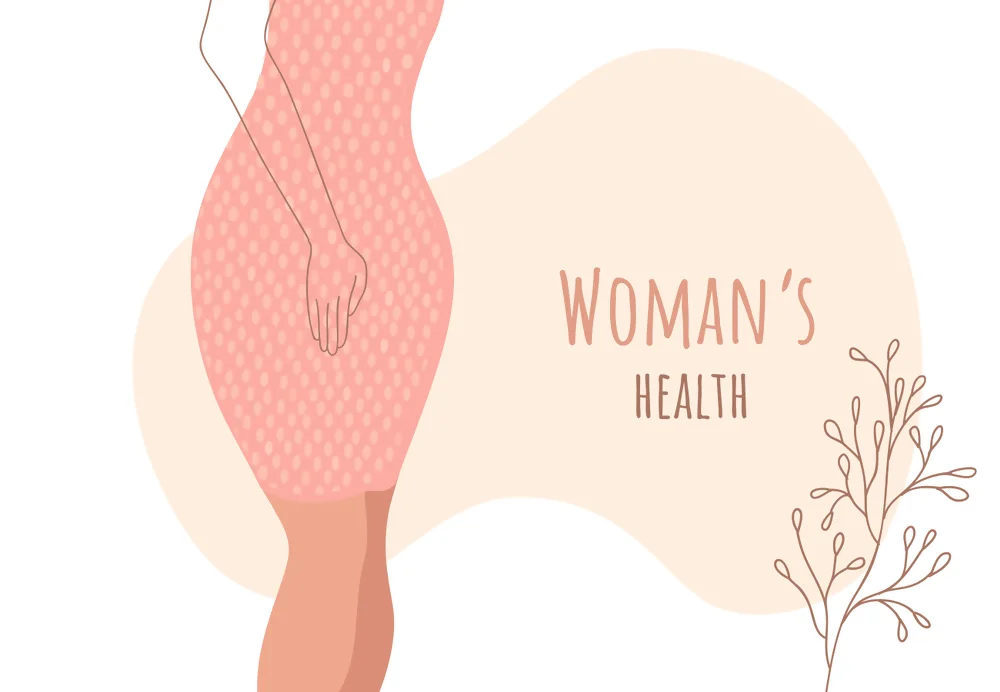
Urinary Incontinence and Menopause: Understanding the Connection
Urinary incontinence is a common concern among women going through menopause. As estrogen levels decline, the muscles and tissues of the pelvic floor, bladder, and urethra may weaken—leading to issues with bladder control. At the Naturopath Osteopath Clinic, we take a holistic, compassionate approach to help women manage and reduce symptoms of incontinence during and after menopause.
Types of Urinary Incontinence Related to Menopause
- Stress incontinence: Leakage occurs during physical activity like coughing, sneezing, or exercising due to weakened pelvic muscles.
- Urge incontinence: A sudden, intense urge to urinate followed by involuntary leakage, often linked to overactive bladder function.
- Mixed incontinence: A combination of both stress and urge incontinence symptoms.
Why It Happens
Estrogen helps maintain the strength and elasticity of the tissues in the urinary tract and pelvic floor. As hormone levels drop during menopause:
- The bladder becomes less elastic and more irritable
- The urethral lining thins and offers less resistance to urine flow
- The pelvic floor muscles lose tone, reducing support for the bladder and urethra
Naturopathic and Integrative Treatment Options
At our clinic, we assess each woman’s symptoms, lifestyle, and hormonal profile to offer personalized, non-invasive treatment plans. Approaches may include:
- Pelvic floor therapy: Including guided exercises like Kegels to strengthen core muscles
- Bioidentical hormone support: To restore local estrogen levels and improve tissue integrity (as appropriate)
- Herbal medicine: Including plant-based remedies such as horsetail, corn silk, or saw palmetto for bladder support
- Dietary modifications: Reducing bladder irritants like caffeine, alcohol, and acidic foods
- Bladder training programs: Helping retrain the body to improve timing and control of urination
Let’s Restore Confidence and Control
Urinary incontinence may be common during menopause, but it doesn’t have to be accepted as normal. With a supportive, individualized treatment plan, many women experience significant improvement or complete resolution of symptoms.
Visit the Naturopath Osteopath Clinic to learn how our integrative solutions can help you regain bladder control and confidence—naturally.
Weight Changes, Metabolism, and Sexual Health During Menopause
Menopause marks a significant transition in a woman’s life, bringing physical, hormonal, and emotional changes. At the Naturopath Osteopath Clinic, we recognize the unique challenges that arise during this phase—especially those related to weight gain or loss, slowed metabolism, and sexual activity.
Weight Gain or Loss During Menopause
Many women notice changes in weight as they enter perimenopause and menopause. Hormonal fluctuations, especially the decline in estrogen, can lead to fat accumulation around the abdomen and hips. However, some women may also experience unintended weight loss due to stress, mood swings, or thyroid dysfunction.
- Loss of lean muscle mass contributes to fat gain
- Insulin resistance may develop, making it harder to manage weight
- Sleep disturbances and mood changes affect eating patterns
Slowed Metabolism and Menopause
Estrogen plays a role in regulating metabolism and maintaining muscle mass. As levels drop, your body naturally burns fewer calories. This metabolic shift makes it easier to gain weight, even with consistent eating and exercise habits.
Our naturopathic team provides personalized treatment plans that include:
- Metabolism-boosting nutrition strategies
- Targeted supplements and herbs (e.g., adaptogens, green tea extract)
- Hormone panel testing and bioidentical hormone support (if indicated)
- Customized exercise routines to build lean muscle and support metabolism
Sexual Activity and Menopause
Menopause can affect sexual wellness in multiple ways—physically and emotionally. Lower estrogen and testosterone levels may reduce libido, cause vaginal dryness, and make intimacy uncomfortable.
- Common concerns: Decreased libido, pain during intercourse (dyspareunia), vaginal dryness, or emotional disconnection
- Underlying causes: Hormonal imbalance, stress, sleep issues, relationship dynamics
Our naturopathic approach includes:
- Natural hormone-balancing therapies
- Botanical remedies (e.g., maca root, ginseng, black cohosh)
- Lubricating and tissue-repairing topical solutions
- Counseling support for relationship and mood-related concerns
Feel Empowered Through the Menopausal Transition
At the Naturopath Osteopath Clinic, we help women navigate menopause with confidence, balance, and compassion. Whether you’re facing metabolic shifts or intimacy challenges, our holistic care plans are tailored to support your unique journey.
Contact us today to take the first step toward renewed vitality, healthy weight management, and restored sexual well-being—naturally.
Naturopath Osteopath Clinic Services

Women’s Health and Wellness
Naturopathic doctors often specialize in women’s health and wellness, providing personalized, integrative care that supports women through every stage of life. From adolescence and fertility to pregnancy, menopause, and healthy aging, naturopathic care focuses on prevention, hormonal balance, and whole-body wellness—empowering women to take an active role in their long-term health.

Men’s Health and Wellness
Men’s health and wellness are essential not only for individual vitality but also for the strength of families and the resilience of entire communities. Prioritizing men’s physical, mental, and emotional well-being leads to healthier relationships, improved quality of life, and increased productivity—ultimately contributing to a more balanced and thriving society. Comprehensive care for men supports long-term health, disease prevention, and overall fulfillment at every stage of life.

Mental Health
A holistic approach can be especially beneficial for individuals facing mental health challenges, as it aims to identify and address the underlying causes of symptoms—not just manage them. By considering the physical, emotional, and lifestyle factors that contribute to well-being, holistic care supports more comprehensive and lasting mental health outcomes.
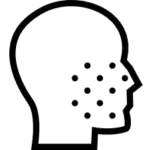
Integumentary System, Skin Conditions
Naturopathic doctors often specialize in the integumentary system, which includes the skin, hair, and nails. Through a holistic and individualized approach, they can effectively address a range of skin conditions such as acne, eczema, psoriasis, and other inflammatory or chronic dermatological concerns. By identifying the root causes—whether hormonal, digestive, or immune-related—naturopathic care supports long-term skin health from the inside out.

Endocrine Conditions
Naturopathic doctors commonly support patients with endocrine-related conditions such as diabetes, thyroid dysfunction, and adrenal fatigue. By addressing hormonal imbalances through lifestyle changes, nutritional support, and targeted natural therapies, naturopathic care aims to restore optimal endocrine function and improve overall well-being.

Cardiovascular Conditions
Naturopathic doctors provide holistic, patient-centered care and can support individuals with a wide range of cardiovascular conditions. By focusing on lifestyle, nutrition, stress management, and natural therapies, they work to address underlying risk factors and promote long-term heart health.

Autoimmune disorders, Immune System Condition
An immune system condition refers to any disorder that affects the body’s ability to defend itself against illness and disease. This includes a wide range of issues such as chronic infections, autoimmune diseases, and allergic reactions—each involving an imbalance or dysfunction in immune system response.

Rheumatologic and Musculoskeletal Conditions
Rheumatologic and musculoskeletal conditions refer to disorders that affect the joints, muscles, bones, and connective tissues, often resulting in pain, inflammation, stiffness, and restricted mobility. These conditions can significantly impact daily function and quality of life if not properly managed.

Respiratory System Conditions
A Naturopathic Doctor (ND) takes a holistic approach to care, focusing on treating the whole person rather than just the symptoms of an illness. Rooted in the belief that the body has an innate ability to heal itself, naturopathic medicine emphasizes identifying and addressing the underlying causes of disease while supporting the body’s natural healing processes.

Gastrointestinal Conditions
A naturopathic doctor specializing in gastrointestinal conditions typically utilizes a range of natural therapies to support and restore digestive health. This may include nutritional counseling, herbal medicine, probiotics, lifestyle modifications, and stress management techniques—each tailored to address the root causes of digestive imbalance and promote optimal gut function.

Neurology and Pain Management
Naturopathic doctors are trained in a wide range of natural therapies that can support the treatment of neurological conditions. These therapies may include botanical medicine, homeopathy, acupuncture, nutritional support, and lifestyle interventions—each aimed at improving nervous system function, reducing inflammation, and enhancing overall neurological well-being.
If you liked this content and found it to be informative, please rate it.
We are sorry that this post was not useful for you!
Let us improve this post!
Tell us how we can improve this post?
